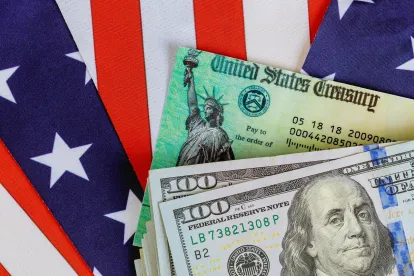Now that the Coronavirus Aid, Relief, and Economic Security (CARES) Act (P.L. 116-136) has been signed into law, the policies contained in this legislation have moved on to the implementation stage, with a number of federal agencies having already begun to release guidance. The House and Senate are currently in recess until at least April 20th; however, conversations are already occurring surrounding the crafting of a fourth COVID-19 response package, potentially a “CARES 2” measure expanding upon the CARES Act. Despite Congressional Republicans expressing initial desire to evaluate the CARES Act’s impact before proceeding with a fourth measure, House Speaker Pelosi is moving forward to assemble a fourth, recovery-focused package. Senate Majority Leader Mitch McConnell (R-KY) has also acknowledged there will be a fourth COVID-19 response bill, with health care a top priority. While a fourthCOVID-19 response package will likely require prolonged negotiations among Congressional Leaders and the White House, Congress may act more immediately, on a smaller measure to infuse more money to small businesses to cover payroll and expenses during the pandemic through the newly established Paycheck Protection Program. The timing for action on additional relief bills, including replenishing programs created in the CARES Act, remains unclear.
Rigorous oversight of CARES Act implementation has also begun, as the measure created a number of oversight bodies, and Speaker Pelosi is also creating a bipartisan House Select Committee on the Coronavirus Crisis –to be chaired by Majority Whip Clyburn (D-SC) – charged with ensuring accountability and transparency as the federal government responds to the crisis. Addressing gaps in the CARES Act and expanding on its policies will be key considerations as Congress crafts its fourth COVID-19 relief package.
In the midst of CARES Act negotiations, you may recall that House Democrats introduced the Take Responsibility for Workers and Families Act (H.R. 6379), which contained many Democratic priorities and that may serve as a starting point for a fourth COVID-19 response package.
Additionally, lawmakers are already discussing the possibility of including the following policies in the next COVID-19 relief package and/or even a fifth COVID-19 package:
-
Additional funding for hospitals and health care providers;
-
Providing hazard pay to health care workers;
-
Surprise billing legislation;
-
Protections for health care workers, frontline responders, and employees at risk due to COVID-19;
-
Federal assistance for additional industries impacted by COVID-19;
-
Reversing the $10,000 cap on the state and local tax (SALT) deduction instituted by the Tax Cuts and Jobs Act;
-
Investing in the Nation’s infrastructure, including broadband and water infrastructure (President Trump has signaled support for infrastructure spending);
-
Funding to help state and local governments respond to COVID-19 impact;
-
Providing free treatment for those with COVID-19;
-
Additional direct cash payments to individuals;
-
Extended unemployment insurance;
-
Increasing Supplemental Nutrition Assistance Program benefits;
-
Designating a centralized authority to oversee distribution of medical supplies and personal protective equipment supply chains; and
-
Expanding family leave for those caring for COVID-19 patients.





 />i
/>i
